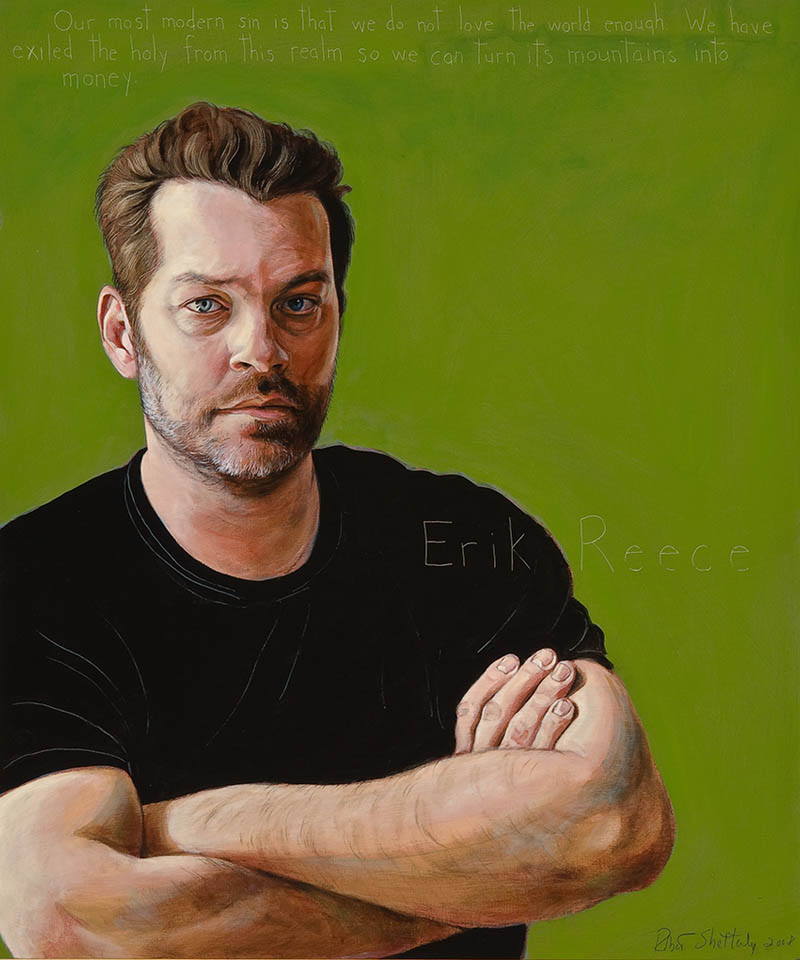
Erik Reece
Environmental Journalist, Teacher : b. 1967
“Our most modern sin is that we do not love the world enough. We have exiled the holy from this realm so we can turn its mountains into money.”
Biography
In 2003, Erik Reece, an instructor of environmental journalism at the University of Kentucky, decided to document the mining of Lost Mountain in Kentucky over a period of several months. The resulting book, Lost Mountain: A Year in the Vanishing Wilderness, Radical Strip Mining, and the Devastation of Appalacia, chronicles what he saw on his visits to the mountain. He writes, “I came here to see what an eastern mountain looks like before, during, and after its transformation into a western desert.”
Reece´s stark, firsthand account describes how the most ecologically diverse part of America is being blown away for profit. Every trip he saw more destruction than on the previous visit: “As I round a bend near the summit, the forest falls away below my driver’s-side window. I am not speaking figuratively. The trees that lined the left side of this road two weeks ago, and that held in place the southern slope of Lost Mountain, are gone….This mountainside has been scalped; the trees that covered it now lie in massive piles all down the slope.”
In 2009, Reece published An American Gospel: On Family, History, and the Kingdom of God. In it, Reece recalls his relationships with his father and grandfather –both Baptist ministers; Reece’s father committed suicide when he was three– and his own struggle with his religious heritage. His grandfather believed and fervently preached that what happens in the afterlife is what matters.
Seeing the destruction of the mountains around him, Reece takes a different view of man’s role on the planet. In his book, Reece writes that “the more mainstream Christianity emphasizes a theology of salvation from this world, the more it ignores Jesus’ teachings of how we should act while we inhabit this earthly realm.”
Erik Reece’s writings are forceful arguments in the environmental justice movement. He believes “the kingdom of God lies all around us, not waiting in the sweet hereafter. Therefore, we must conduct our lives in ways that honor – and will make more manifest – this immanent kingdom through stewardship, empathy, and a very real sense of the just.”
Programs
Americans Who Tell the Truth (AWTT) offers a variety of ways to engage with its portraits and portrait subjects. Host an exhibit, use our free lesson plans and educational programs, or engage with a member of the AWTT team or portrait subjects.

Education
AWTT has educational materials and lesson plans that ask students to grapple with truth, justice, and freedom.

Exhibits & Community Engagement
AWTT encourages community engagement programs and exhibits accompanied by public events that stimulate dialogue around citizenship, education, and activism.